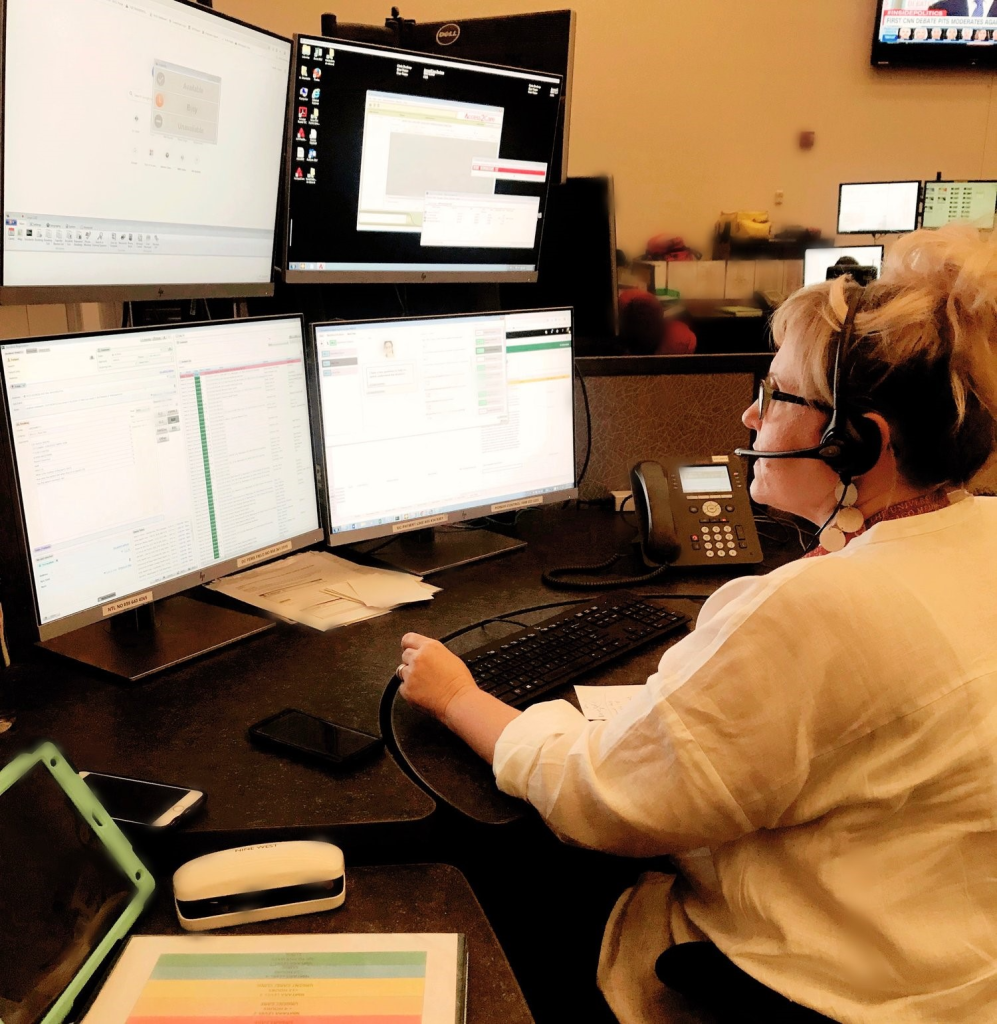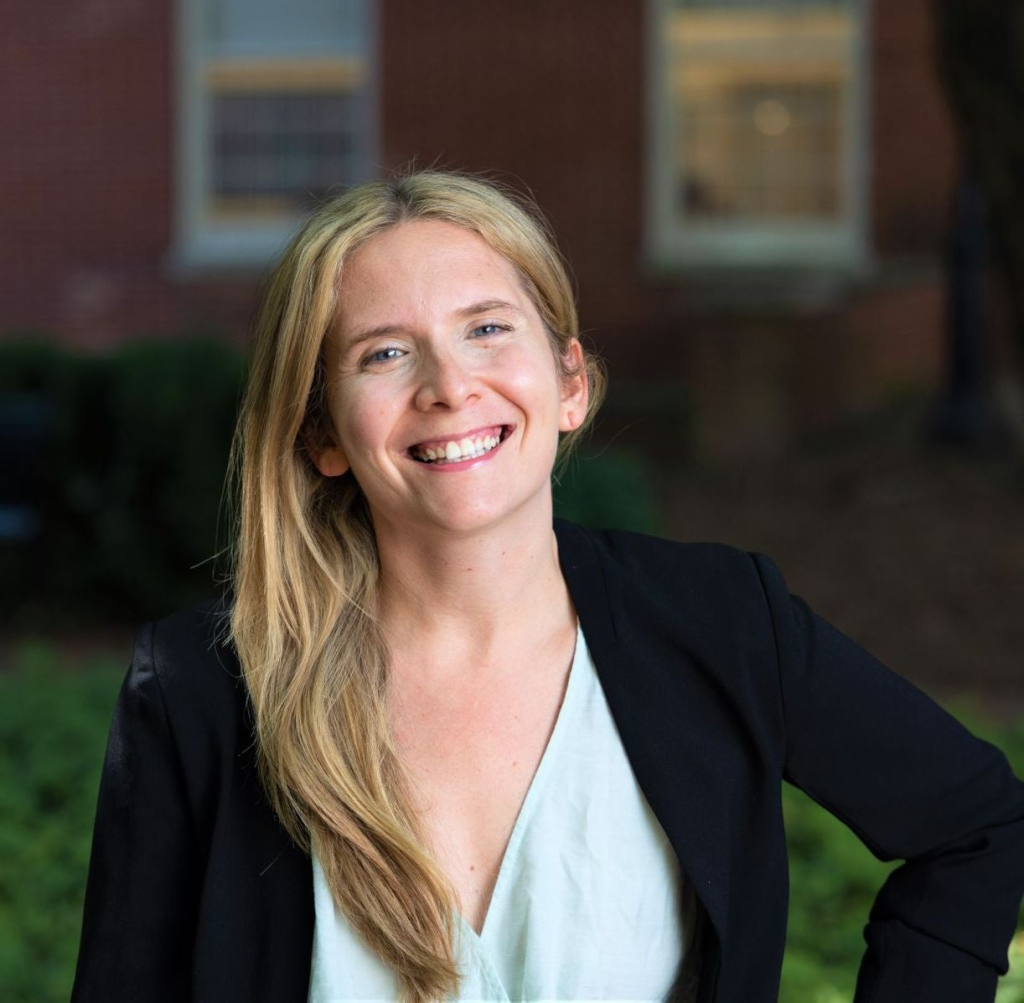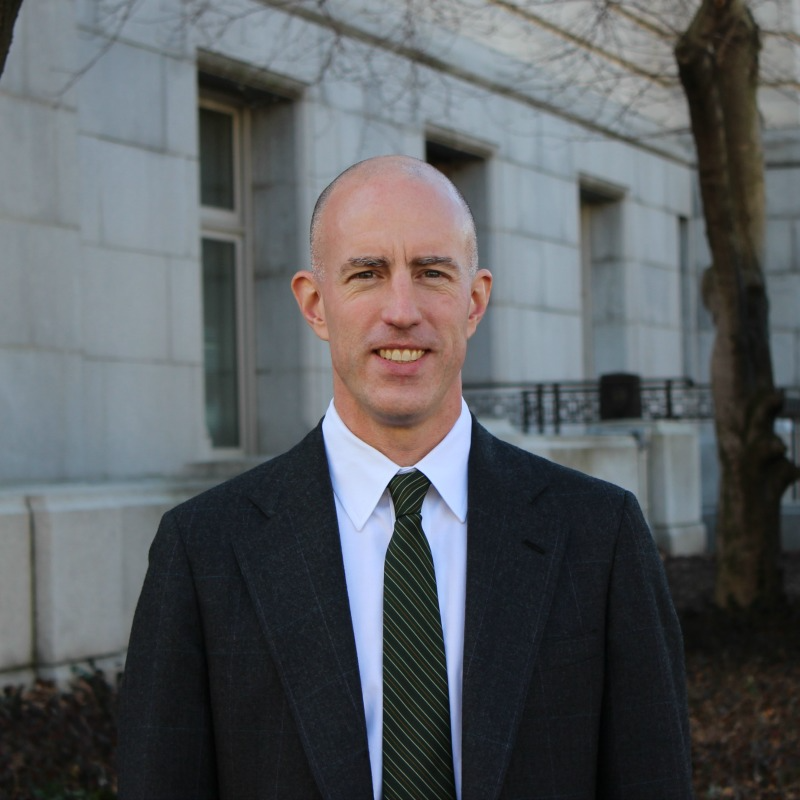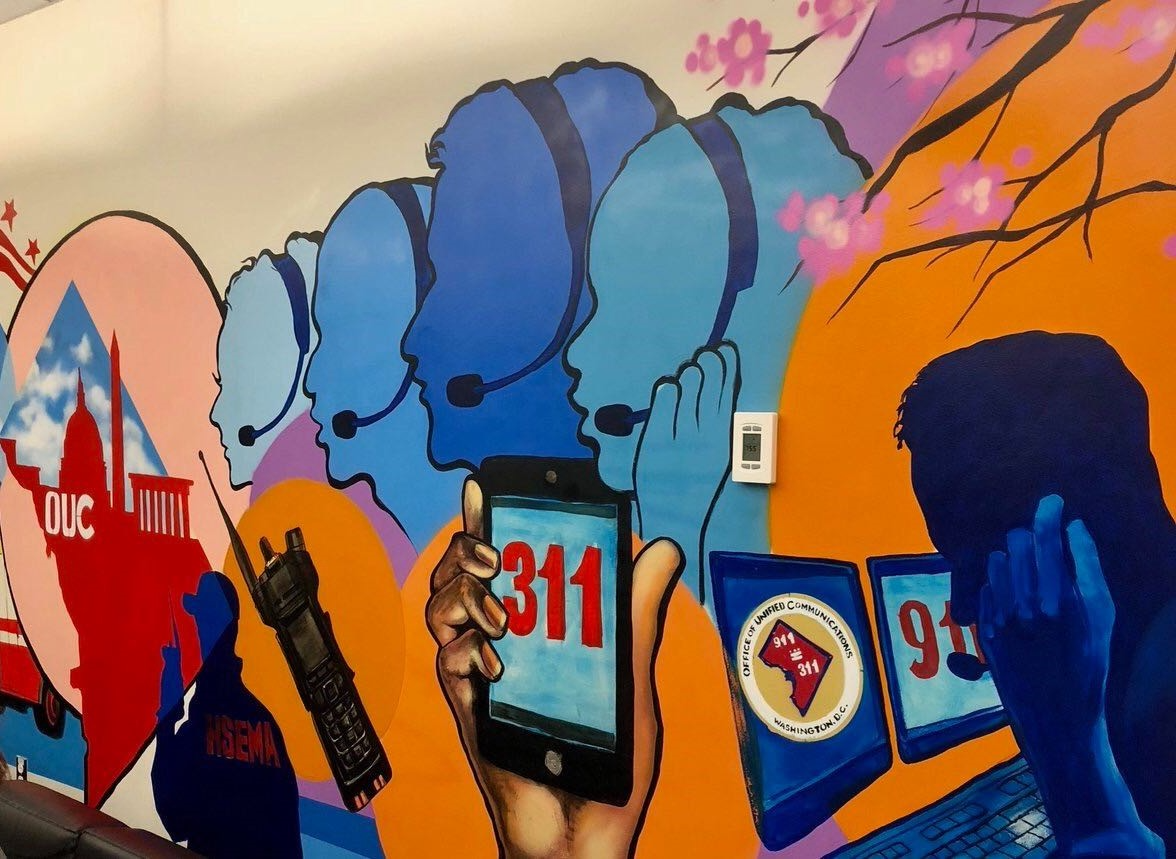How nurse-led triage is better connecting DC’s 911 callers to appropriate care
Researchers from Georgetown University, American University and The Lab @ DC discovered that nurse placement in the 911 call center significantly reduced strain on the District’s emergency services.
According to DC’s Office of Unified Communications (OUC), the District’s 911 call center is one of the busiest in the country, historically ranking behind those of New York City, Chicago and Los Angeles. In 2023, OUC received more than 1.7 million 911 calls for service, including more than 3,000 calls requiring CPR instructions.
Dr. Rebecca Johnson, an assistant professor at Georgetown University’s McCourt School of Public Policy, and Dr. Ryan T. Moore, an associate professor at American University’s School of Public Affairs (AU SPA), partnered with District Government researchers at The Lab @ DC, where they are dually appointed, to evaluate the effectiveness of a unique initiative connecting 911 callers with non-life-threatening symptoms to appropriate care.

A Right Care, Right Now nurse on duty. (Credit: DC Office of Unified Communications)
Under the Right Care, Right Now program, a dispatcher at the District’s 911 call center or a Fire and Emergency Medical Services Department (FEMS) first responder redirects non-emergency calls to nurses who diagnose patients over the phone, advise callers on where to seek care nearby or arrange non-emergency transport. Eligibility for the nurse triage line is determined by an approved list of chief complaints, including indigestion, sunburns and flu-like symptoms.
DC Government aims to help preserve resources for serious emergencies and reduce strain on an already overstretched system by more effectively triaging callers with less serious and non-life-threatening injuries and conditions.
Johnson, who joined the research team evaluating the Right Care, Right Now program in the fall of 2019, was asked to contribute to the project based on her administrative data analysis expertise and experience researching the complex American health care system. As a data scientist at The Lab @ DC, Johnson obtained and analyzed administrative data from agencies across DC Government to assess the program’s effectiveness. She and her collaborators later developed a report to help local leaders and policymakers understand the program’s impact and the benefits offered to District residents.
“I bring lessons learned from work at The Lab @ DC into my teaching at McCourt, such as using the analytical challenges I have faced with administrative data as inspiration for problem sets to evaluate my students’ learning,” said Johnson, who teaches data science in the McCourt School’s Master of Science in Data Science for Public Policy program and is an affiliate of the McCourt School’s Massive Data Institute.

Dr. Rebecca Johnson is an assistant professor at Georgetown University’s McCourt School of Public Policy and a data scientist at The Lab @ DC.
Moore, a senior social scientist at The Lab @ DC since 2016, helped design and develop the nurse-triage intervention study from its outset.
“This is such an exciting project; it demonstrates the very large social impacts that deep, meaningful collaborations between policymakers and academics can have when we join forces for high-quality research,” said Moore, who teaches statistical methods and data science in the Department of Government at AU SPA and in conjunction with AU’s Center for Data Science.

Dr. Ryan T. Moore is an associate professor at American University’s School of Public Affairs and a senior social scientist at The Lab @ DC.
The compelling results behind nurse-led triage of 911 calls
After analyzing the program’s impact on callers from April 2018 to February 2019, Johnson, Moore and fellow researchers found the proportion of calls resulting in an ambulance dispatch dropped from 97% to 56%, and those resulting in ambulance transport dropped from 73% to 45%.
Visits to an emergency department within 24 hours of calling 911 dropped among Medicaid beneficiaries from 29.5% to 25.1%, and the number of those callers who instead visited a primary care physician rose from 2.5% to 8.2%.
The short-term effects suggest that nurse-led triage of non-emergency calls can safely connect callers to more appropriate, timely care. The potential long-term impacts on emergency department and primary care visits or Medicaid expenditures remain unclear and will be the subject of future research.
Nature Human Behaviour, a leading peer-reviewed scientific journal, published the research team’s study in May 2024. Co-authors include Dr. Kevin Wilson, Dr. David Yokum and Dr. Chrysanthi Hatzimasoura, all former members of The Lab @ DC, and Dr. Robert Holman, DC FEMS’s longest-serving medical director, who was instrumental in launching the research study.
“Academic journal articles are never our primary motivation, but the publication of our results in a prominent journal should give District residents confidence that important decisions about their city are being informed by the best available scientific methods,” said Sam Quinney, director of The Lab @ DC.
Since its launch in 2018, the Right Care, Right Now program has evolved from a pilot initiative into a successful program delivering compelling results in the District. Over the last six years, Dr. Holman said dispatchers and DC FEMS first responders have triaged nearly 75,000 non-emergency 911 calls and directed about 35,000 of those callers to more appropriate sites of care, such as primary and urgent care clinics, self-care, telehealth or a home visit by non-transporting EMS personnel rather than emergency departments.
Learn more about how nurses are improving care at the District’s 911 call center here.
